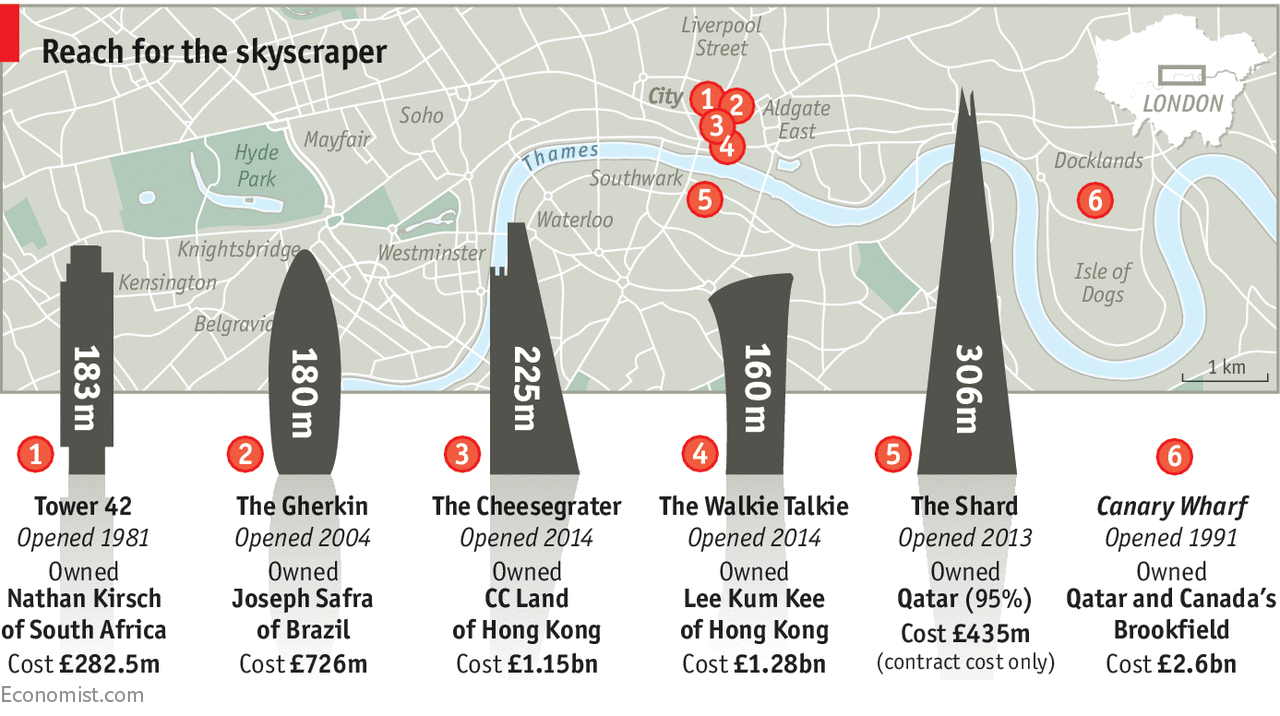
LONDON’S skyline has altered a lot in the last 30 years. While it can’t match Manhattan or Chicago, there are quite a few trophy buildings that can be seen from this columnist’s office window (for the moment*). The British sense of humour means these offices often acquire their own nicknames, regardless of the developer’s intentions—the Cheesegrater or the Gherkin, for example.
And the buildings also tend to get snapped up by foreign investors (see map). The latest to go is the “Walkie talkie” at 20, Fenchurch Street which has been bought by Lee Kum Kee, a Hong Kong food company, for £1.3bn, the highest amount ever paid for a British building. Presumably the company, best known for its oyster sauce, is not planning to transfer production to the site; this is a punt on the London property market.
-
Few business travellers now take a taxi
-
Foreign investors snap up London’s iconic buildings
-
Australia’s most successful indigenous musician has died
-
How species originate
-
Retail sales, producer prices, wages and exchange rates
-
Foreign reserves
Ironically, it was only a year ago that many British property funds had to suspend trading in the wake of the Brexit vote. But the medium-term effect of the vote was to drive down the value of the pound and attract bargain-hunters armed with foreign currencies. The Cheesegrater was bought in March this year.
It remains to be seen whether this is a good long-term bet; Japanese investors splurged on American and British properties in the 1980s and 1990s and had a mixed record. Brexit means that some banks are moving some staff overseas (mostly to Frankfurt); on the other hand, Amazon is expanding its London presence. The bigger threat to London property may come from domestic politics, rather than Brexit; a Jeremy Corbyn-led government with plans for higher taxes on profits, executive salaries and even compulsory property purchases might scare away expat investors. Lee Kum Kee could yet be left with sauce on its face.
*We are moving office next month.
Source: economist
Foreign investors snap up London's iconic buildings